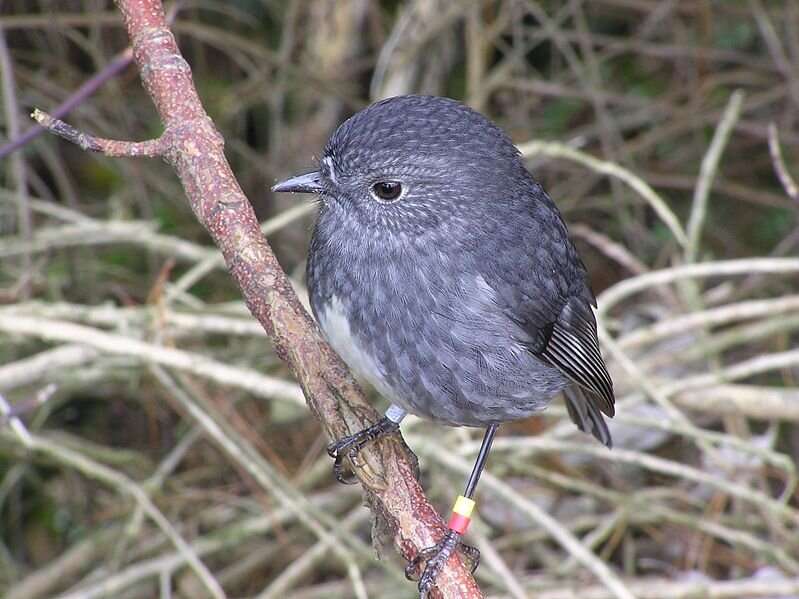February 18, 2020 report
North Island robins found to have long term memory

A pair of researchers at Victoria University of Wellington has found that North Island robins have long-term memory. In their paper published in the journal Biology Letters, Rachael Shaw and Annette Harvey describe experiments they conducted with the birds and what they learned from them.
Humans have notoriously long memories, as do some other animals. Elephants, for example, have been found to remember water holes they have not visited for many years. And red-footed tortoises have been observed retrieving food from stores stashed away over long periods of time. In this new effort, the researchers tested long-term memory in North Island robins living in New Zealand.
North Island robins, more popularly known as toutouwai, are native to New Zealand and are popular because they are cute and show little fear of humans—quite often, they can be seen alighting on a person's shoulder, boot or even head. They are also small, just slightly bigger than a common sparrow. The work by Shaw and Harvey was initially an investigation into whether the birds could be taught to open a closed vessel to retrieve a desired bit of food. The food vessel consisted of a block of plastic with three holes drilled halfway through. Each of the pits was large enough to temporarily house a mealworm—a favored food treat for toutouwai. Each of the pits was covered with a swiveling lid. The researchers taught the wild birds to open and retrieve the food inside by starting with the lids open, and then progressively closing them more over time. Eventually, the birds learned to peck open the food bins upon sight with the lids fully closed.
The researchers then returned to the same site 22 months later to find out if the birds would remember the food bins, and if so, how to open them. In all, they observed 32 birds they had trained previously investigate the food bin—all but two immediately pecked open the lids and retrieved their meal. The researchers also observed 17 toutouwai that had not been trained investigating the food bin—none of them were able to open the lids.
More information: Rachael C. Shaw et al. Long-term memory for a learned behaviour in a wild bird, Biology Letters (2020). DOI: 10.1098/rsbl.2019.0912
Journal information: Biology Letters
© 2020 Science X Network


















